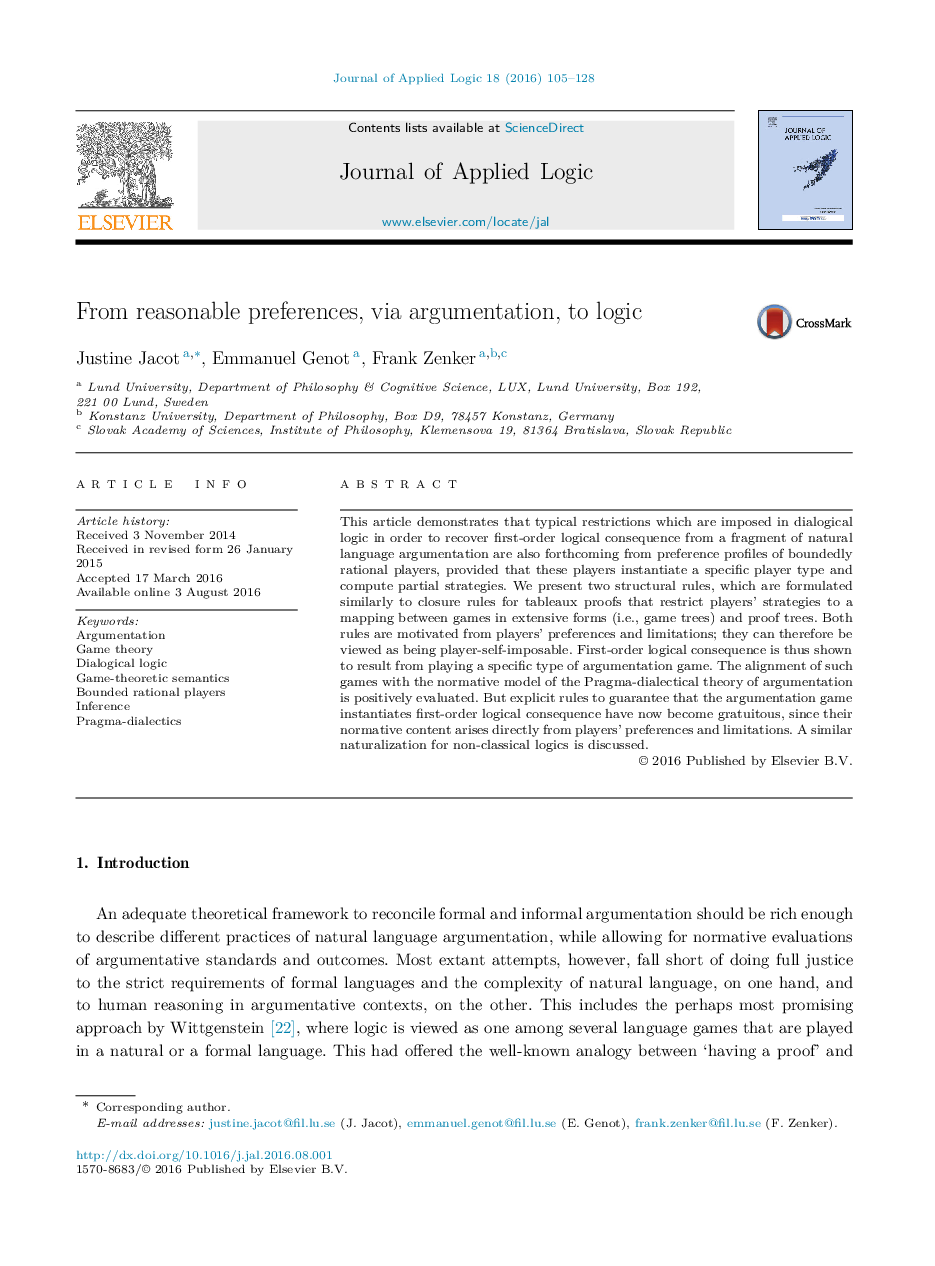| Article ID | Journal | Published Year | Pages | File Type |
|---|---|---|---|---|
| 4662876 | Journal of Applied Logic | 2016 | 24 Pages |
This article demonstrates that typical restrictions which are imposed in dialogical logic in order to recover first-order logical consequence from a fragment of natural language argumentation are also forthcoming from preference profiles of boundedly rational players, provided that these players instantiate a specific player type and compute partial strategies. We present two structural rules, which are formulated similarly to closure rules for tableaux proofs that restrict players' strategies to a mapping between games in extensive forms (i.e., game trees) and proof trees. Both rules are motivated from players' preferences and limitations; they can therefore be viewed as being player-self-imposable. First-order logical consequence is thus shown to result from playing a specific type of argumentation game. The alignment of such games with the normative model of the Pragma-dialectical theory of argumentation is positively evaluated. But explicit rules to guarantee that the argumentation game instantiates first-order logical consequence have now become gratuitous, since their normative content arises directly from players' preferences and limitations. A similar naturalization for non-classical logics is discussed.
